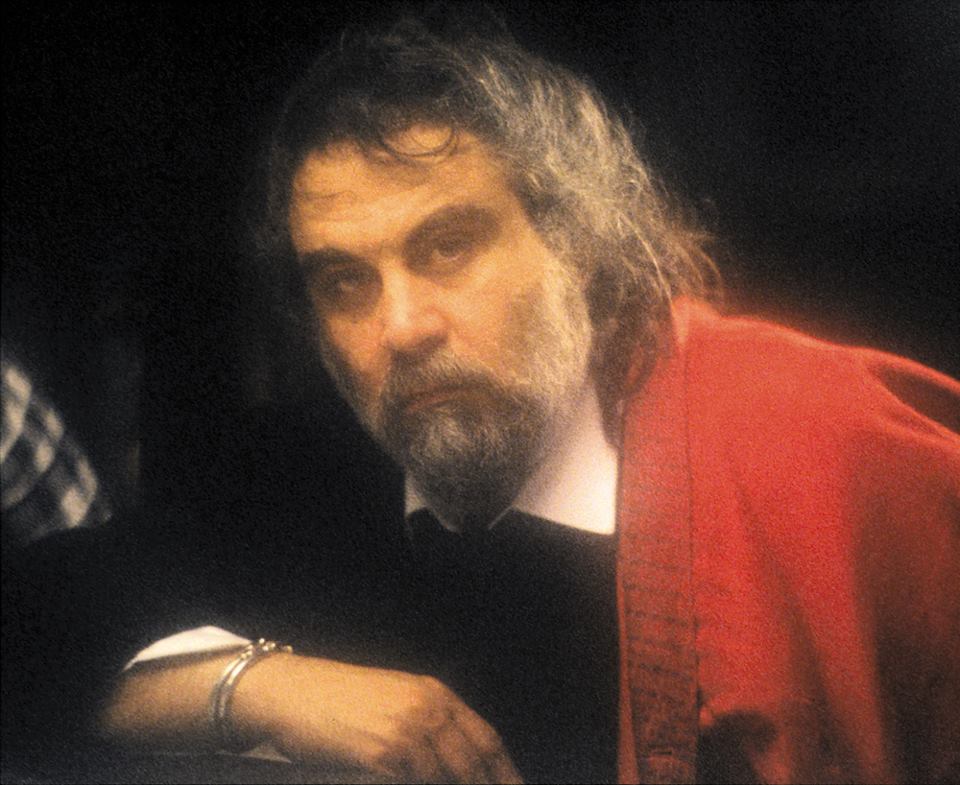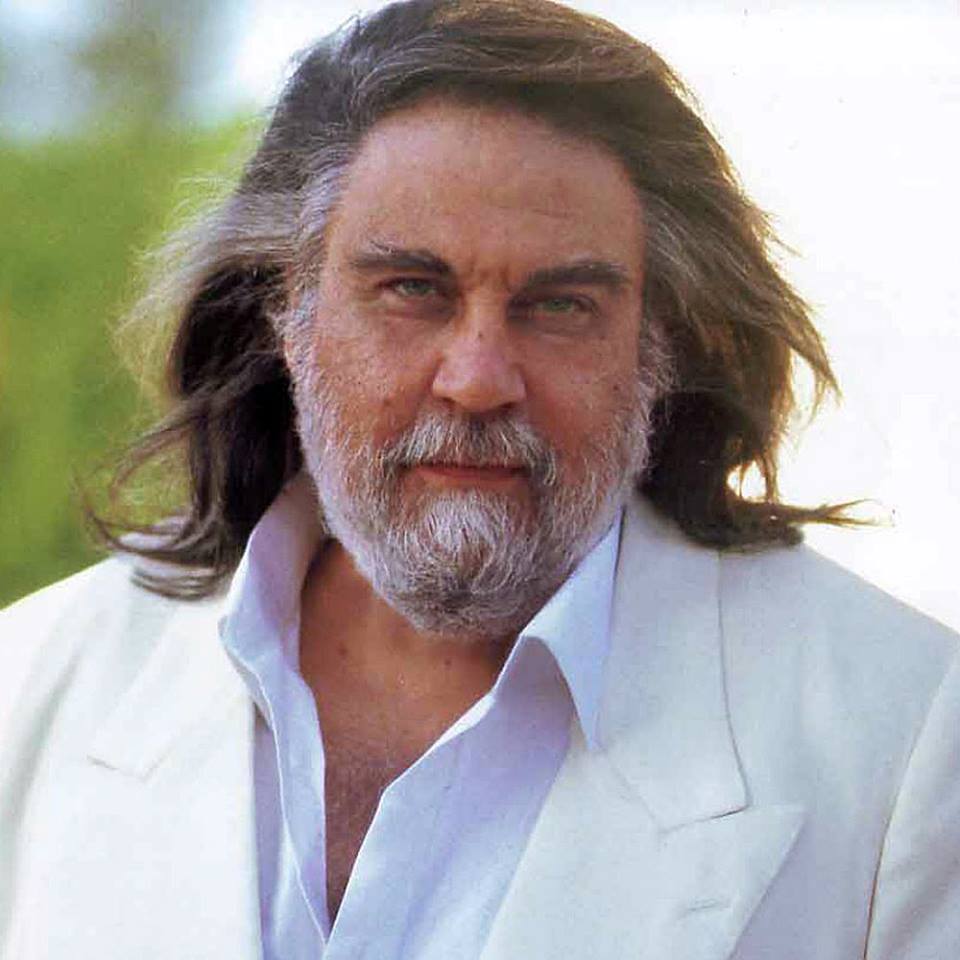BIOGRAPHICAL DETAILS
Full Name: Evangelos Odysseas Papathanassion
Description: Comoser,
Instruments: Zynthersizer
Music Styles: Electoronic, Rock
Date Born: 29th March 1943
Location Born: Volos
CONTACT DETAILS
Web Site:Vangelis History
Other Links: See below:above
YOUTUBE VIDEO
BIOGRAPHICAL PROFILE
Vangelis
Born in Greece.
Evangelos Odysseas Papathanassiou (Greek: born 29 March 1943), professionally known as Vangelis, is a Greek composer of electronic, progressive, ambient, jazz, pop rock, and orchestral music. He is best known for his Academy Award–winning score for the film Chariots of Fire, composing scores for the films Antarctica, Blade Runner, 1492: Conquest of Paradise, and Alexander, and the use of his music in the PBS documentary Cosmos: A Personal Voyage by Carl Sagan.
Vangelis began his professional musical career working with several popular bands of the 1960s such as The Forminx and Aphrodite’s Child, with the latter’s album 666 going on to be recognized as a psychedelic classic. Throughout the 1970s, Vangelis composed music scores for several animal documentaries, including L’Apocalypse Des Animaux, La Fête sauvage and Opéra sauvage; the success of these scores brought him into the film scoring mainstream. In the early 1980s, Vangelis formed a musical partnership with Jon Anderson, the lead singer of progressive rock band Yes, and the duo went on to release several albums together as Jon & Vangelis.
In 1981, he composed the score for the Oscar-winning film Chariots of Fire, for which he won an Academy Award for Best Original Music Score. The soundtrack’s single, Titles, also reached the top of the American Billboard Hot 100 chart and was used as the background music at the London 2012 Olympics winners’ medal presentation ceremonies.
Having had a career in music spanning over 50 years and having composed and performed more than 52 albums, Vangelis is one of the most important exponents of electronic music
Vangelis was born 29 March 1943, in Agria, near Volos, Greece. Largely a self-taught musician, he reportedly began composing at the age of four. He refused to take traditional piano lessons, and throughout his career did not have substantial knowledge of reading or writing musical notation. He studied painting — an art he still practices at the Academy of Fine Arts in Athens. When he was six, Vangelis’s parents enrolled him at a specialist music school in Athens. Vangelis said in an interview with Life, when asked about his lack of ability to read music:
When the teachers asked me to play something, I would pretend that I was reading it and play from memory. I didn’t fool them, but I didn’t care.
Work in bands
In the early 1960s he was one of the founders of pop group The Forminx (or The Formynx), which became popular in Greece. Based in Athens, the five-piece band played a mixture of cover versions and their own material, the latter written mostly by Vangelis (with lyrics by DJ and record producer Nico Mastorakis) but still sung in English. The Forminx released nine hit singles and a Christmas EP before disbanding in 1966 at the peak of their success. A film being made about them at the time, which was initially directed by Theo Angelopoulos, was never fully completed, and the songs, composed for the movie, were never released. Vangelis spent the next two years mostly studio-bound, writing and producing for other Greek artists.
Around the time of the student riots in 1968, Vangelis founded progressive rock band Aphrodite’s Child together with Demis Roussos, Loukas Sideras, and Anargyros “Silver” Koulouris. After an unsuccessful attempt to enter the UK, they found a home in Paris where they recorded their first single, a hit across much of Europe called Rain and Tears. Other singles followed, including two albums, which, in total, sold over 20 million copies. The record sales led the record company to request a third album, and Vangelis went on to conceive the double-album 666, based on Revelation, the last book in the Bible. One of the many remarkable features of this album is Irene Papas’s guest participation (vocal on “Infinity”). Tensions between members during the recording of 666 eventually caused the split of the band in 1971, but the album was still released in 1972. Despite the split, Vangelis has since produced several albums and singles for Demis Roussos, who, in turn, contributed vocals to the Blade Runner soundtrack.
Early solo works
While still in Aphrodite’s Child, Vangelis had already been involved in other projects. In 1970 he had composed the score for a film directed by Henry Chapier and called Sex Power (Demis Roussos sang vocals). In 1971, some jam sessions with a group of musicians at Marquee Studios in London had resulted in two albums’ worth of material, unofficially released without Vangelis’ permission in 1978, titled Hypothesis (aka Visions of the Future), and The Dragon. Vangelis succeeded in taking legal action to have them withdrawn. A more successful project was his scoring of wildlife films made by French filmmaker Frédéric Rossif. The first was L’Apocalypse des animaux, released in 1973. In 1972, the student riots of 1968 provided the inspiration for an album titled Fais que ton rêve soit plus long que la nuit (Make Your Dream Last Longer Than the Night), comprising musical passages mixed with news snippets and protest songs; some lyrics were based on graffiti daubed on walls during the riots.
Solo career
In 1973 Vangelis’ solo career began in earnest. His first “official” solo album was Earth, though it did actually feature a group of musicians including ex-Aphrodite’s Child guitarist Silver Koulouris and also vocalist and songwriter Robert Fitoussi (better known as F.R. David of “Words” fame). This line-up, later briefly going out under the name “Odyssey”, released a single in 1974 titled “Who”, but that was Vangelis’ last involvement with them. Later in 1974, Vangelis was widely tipped to join another prog-rock band, Yes, following the departure of Rick Wakeman. After a couple of weeks of rehearsals Vangelis wavered on the option of joining Yes and, the band had to detour and hire Swiss keyboard player Patrick Moraz instead, who later joined The Moody Blues. Vangelis did, however, become friends with Yes’ lead vocalist Jon Anderson, and later worked with him on several occasions, including as the duo Jon & Vangelis.
After moving to London, Vangelis signed with RCA Records, set up his own studio, Nemo Studios, and began recording a string of electronic albums, such as Heaven and Hell (1975), Albedo 0.39 (1976), Spiral (1977), Beaubourg (1978), and China (1979). Parts of Heaven and Hell were later used as the theme to the PBS television series Cosmos by Carl Sagan. Two melodies from Albedo 0.39, “Alpha” and “Pulstar”, and also one track from L’Apocalypse des animaux, “Création du Monde”, were also used in Cosmos. Another part (the song “So Long Ago, So Clear”), featured guest vocals by Jon Anderson, marking the start of the partnership. Vangelis also contributed as a producer and keyboard player to the album Phos, by the Greek rock band Socrates Drank the Conium (later known simply as Socrates).
In 1979, Vangelis composed the score for another animal documentary by Frédéric Rossif, Opéra sauvage. Almost as well known as L’Apocalypse des animaux, the resulting soundtrack would bring him to the attention of some of the world’s top filmmakers. The music itself would be re-used in other films (most notably the track “L’Enfant” in The Year of Living Dangerously (1982) by Peter Weir; the melody of same (in marching band format) can also be heard at the beginning of the 1924 Summer Olympics opening ceremonies scene in the film Chariots of Fire ) and television commercials (the track “Hymne”, used in Barilla pasta commercials in Italy and Ernest & Julio Gallo wine ads in the US).
Albums include.
(1972) Fais que Ton Rêve Soit Plus Long que la Nuit. Make your dream last longer than the night.
(1973) Earth
(1975) Heaven and Hell
(1976) Albedo 0.39
(1977) Spiral
(1978) Beaubourg
(1979) China
(1980) See You Later
(1984) Soil Festivities
(1985) Mask
(1985) Invisible Connections
(1988) Direct
(1990) The City
(1995) Voices
(1996) Oceanic
(1998) El Greco
(2001) Mythodea: Music for the NASA Mission: 2001 Mars Odyssey
Links:
- Independent Vangelis Site
- Vangelis’ Movements
- Vangelis Collector
- Vangelis’ Nemo Studios
- Vangelis History
- Interview with Vangelis from Den of Geek
- Interview with Vangelis on composing Chariots of Fire from BBC Four’s Sound of Cinema


